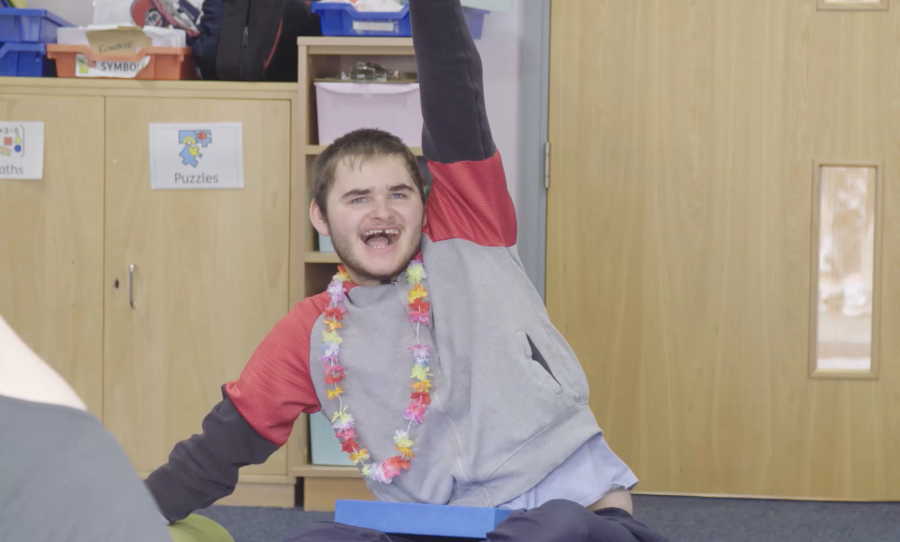What is Angelman Syndrome?
Have you ever heard of Angelman syndrome? It’s an extremely rare genetic condition that affects around one in 15,000 children. It affects the nervous system and can cause physical and learning disabilities.
The first symptoms of Angelman syndrome usually appear in children between 1 and 4 years of age. These symptoms may include:
- Absence or near absence of speech
- Developmental delays
- Learning disabilities
- Ataxia (problems with movement and balance)
- Epilepsy
- Small head size
Angelman syndrome is rare and so you probably have lots of questions. Let's cover off some of the basics...

How does Angelman syndrome differ from other types of epilepsy?
Unlike some other forms of epilepsy, Angelman syndrome is a genetic condition that a child is born with.
Epilepsy is a common symptom of Angelman syndrome. It occurs in 7 or 8 out of every 10 affected children. Seizures usually begin between the ages of one and five years, and seizure types can vary. They may disappear after the age of 12 or 14 years but they may also reappear in adulthood.
Children with Angelman syndrome may experience long periods of blank episodes, during which they are very quiet, unresponsive, are unable to eat and they might drool. This is called ‘non-convulsive status epilepticus’, and episodes should be recognised and treated as soon as possible. Talk to your doctor about this so that, if needed, you are able to recognise it and seek treatment.
Young children with Angelman syndrome under aged 2 may have a high fever with their seizures. This can lead to a diagnosis of 'febrile convulsions'. However, most seizures in people with Angelman syndrome happen without a fever.
What causes Angelman syndrome?
Angelman syndrome is caused when a child is missing or has a change in a gene. This gene is called the UBE3A gene, and occurs on chromosome 15. Most cases happen sporadically. Angelman syndrome is NOT usually inherited, although in rare cases a genetic change can be passed down from a parent to a child

How can it be diagnosed?
If you are seeking a diagnosis for a child, doctors will likely start with blood tests. Blood tests diagnose around 80% of Angelman syndrome patients. Diagnosis can also include looking at a person’s medical history, a clinical evaluation, and observing certain symptoms and characteristics they may have.
What are the effects of Angelman syndrome?
Epilepsy is just one of the many aspects of Angelman syndrome. People with this condition have a happy, excitable behaviour, with repeated smiling, laughter, and hand-flapping movements. In fact, these distinct behavioural symptoms help doctors to diagnose Angelman syndrome.
Children with Angelman syndrome will often experience developmental delays, speech difficulties, sleep problems and difficulties with movement and balance (ataxia).
As affected children get older, they become less excitable, and sleeping problems tend to improve. However, they may also develop a curvature of the spine (scoliosis). It is likely that most children with Angelman syndrome will continue to have learning disabilities and ataxia throughout their lives.
Does it affect life expectancy?
Life expectancy is not affected by Angelman syndrome, however, it is important that affected children receive early treatment to ensure that they reach their potential and live life to the fullest! It is also important that their parents and families get the support they need, whether this be medical support, or from other families experiencing the same.
Are there treatments available and is there a cure?
Although there’s currently no cure for Angelman syndrome, many medical studies are investigating ways to ‘fix’ and reverse the genetic differences of this condition in the body.
Treatment of Angelman syndrome mainly involves the management of medical, sleep and developmental challenges. Every person with this condition will be affected differently. So, depending on the symptoms involved, there are different therapies and approaches available.
In Angelman syndrome, seizures may be difficult to treat in early childhood but they often improve in adolescence. In many cases, these seizures can be controlled with one or more anti-seizure medications.
If you are caring for someone with Angelman syndrome, your medical team and other professionals will help you to find the best treatment, social, management and educational plan to achieve the best for them! Although Angelman syndrome is a rare condition, you are not alone. Find other parents to chat to on The Hub or reach out to us here if you need someone to talk to.
